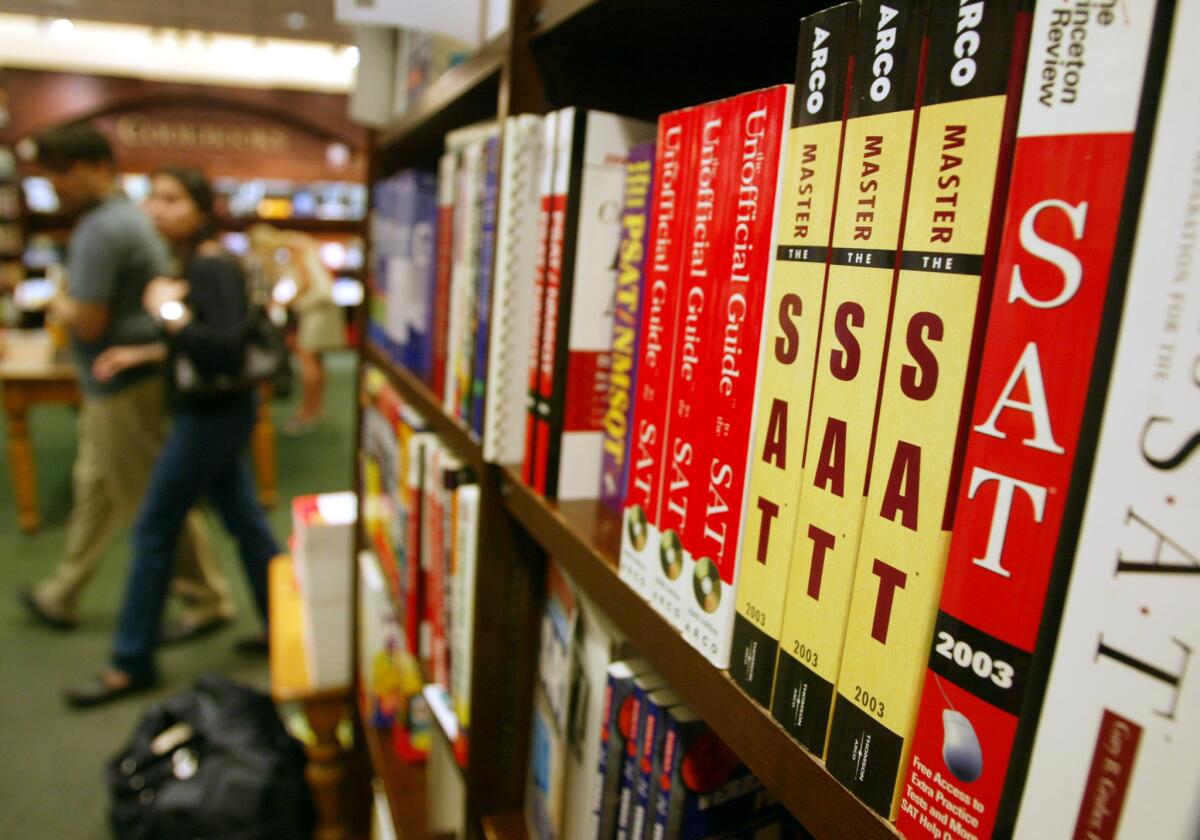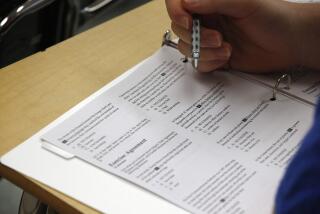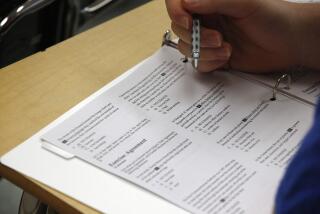SAT plans for at-home tests suspended; some students may not have access to exams

SAT tests may not be available this fall to all students who want to take the college admissions exam as the coronavirus crisis has limited the availability of testing sites and efforts to develop an at-home exam have run into roadblocks, the College Board announced Tuesday.
The testing organization is calling on universities and colleges to take these circumstances into account and extend deadlines for test score submissions. The testing company also is asking college admissions officers to equally evaluate students who were unable to take the test with those who can and to consider that many students will not be able to take the exam more than once, which often yields higher scores.
The next SAT test is scheduled for August, but those seats already are rapidly filling up as 770,000 students who planned to take the exam this spring were unable to do so. The March, May and June exams were canceled amid the coronavirus crisis but College Board officials said they will offer testing every month from August, if safe to do so, including January 2021 if there is demand for it.
“We know demand is very high and the registration process for students and families under this kind of pressure is extremely stressful,” College Board CEO David Coleman said in a statement. “There are more important things than tests right now. In making these difficult decisions, we focused on reducing the anxiety that students and families are experiencing this year. We therefore are asking our member colleges to be flexible toward students who can’t submit scores, who submit them later, or who did not have a chance to test more than once.”
The College Board said it would not offer an at-home SAT this year because taking it would require three hours of uninterrupted, video-quality internet for each student, which can’t be guaranteed for all. But the testing organization said it would continue to develop remote proctoring capabilities to make an at-home SAT possible in the future.
High school counselors had expressed concern that their students would not be able to take the test this fall because of overwhelming demand and reduced capacity at testing sites due to social distancing.
Lauren Cook, president of the Western Assn. of College Admission Counseling, said counselors were concerned that there wouldn’t be enough seats and that demand for them would pressure testing sites to violate social distancing rules. But she said Tuesday that she was “thrilled” by the College Board’s clear acknowledgement of the looming capacity crunch and call for college flexibility.
“It appears that they are (finally) conceding to a reality that most high school counselors could see coming from miles away,” Cook said in an email. “I would urge colleges who have not yet adopted a test-optional policy to consider doing so immediately.”
University of California regents, in a landmark action last month, voted to make SAT and ACT testing requirements optional for admission for the next two years before phasing them out completely for California students. The California State University system has gone further, announcing that standardized test scores will not be used at all for applicants for the 2021-2022 academic year.
Testing officials said they are working with local high schools, colleges and other sites to increase capacity in areas where August and September registrations are filling up.
SAT registration opened on May 28 for select students — those who had registered for the June test and did not cancel and juniors and seniors who have not yet taken the exam. Registration opens to all students this week.
Additionally, some state and large school districts plan to offer the SAT to students for free in the fall to replace canceled administrations in the spring. Los Angeles Unified, however, is still evaluating whether the testing will go forward, a spokeswoman said.
More to Read
Sign up for Essential California
The most important California stories and recommendations in your inbox every morning.
You may occasionally receive promotional content from the Los Angeles Times.











